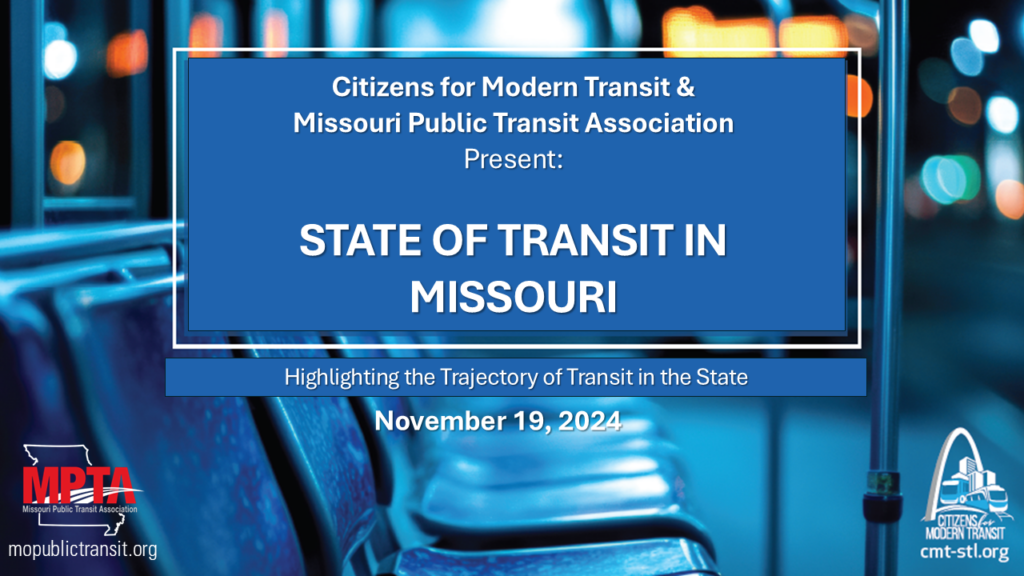For the first time since the pandemic, both urban and rural transit providers in Missouri are echoing the same sentiment – optimism. Ridership numbers are nearing and, in some places, exceeding ridership numbers from prior to 2020. Operator shortages have been nearly eradicated. Millions in new vehicle fleets have been purchased by both urban and rural providers across the state. A Bi-State Corridor study is underway in Kansas City to evaluate bus rapid transit service and other transportation modes spanning 24 miles through three cities across two states. The KC Streetcar will open its Main Street Extension for revenue service next year. The proposed St. Louis MetroLink Green Line extension project has entered the federal process. The spirit of collaboration is at an all-time high as public transit remains a bi-partisan issue.
These highlights were just a few of the many discussed during Citizens for Modern Transit’s virtual State of Public Transit event, held on Nov. 19, 2024, in conjunction with the Missouri Public Transit Association. Those in attendance heard from leaders of the state’s two largest metropolitan areas and rural transit providers, including Taulby Roach, President and CEO of Bi-State Development, which operates Metro Transit in the St. Louis metropolitan region; Frank White, III, President and CEO of the Kansas City Area Transportation Authority (KCATA); Tom Gerend, Executive Director of the KC Streetcar; and Dorothy Yeager, Executive Director of OATS, the largest rural transit provider in the country. The discussion was moderated by Kimberly Cella, Executive Director of both Citizens for Modern Transit and the Missouri Public Transit Association.
Panelists also reinforced the need to work together, with a unified voice, to advocate for public transit advancement throughout the state and agreed on areas of opportunity. Mechanics are needed, and local and state funding investment is imperative to transit providers’ ability to draw down available federal funds. Transit providers must do what it takes to remain relevant and cost-effective for consumers.
Click here to watch the conversation in its entirety or view the recording below:
